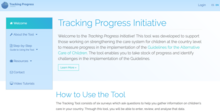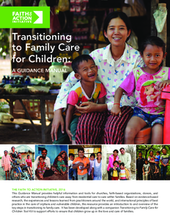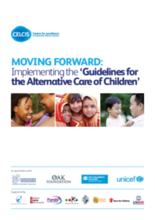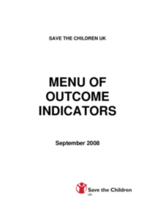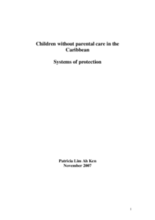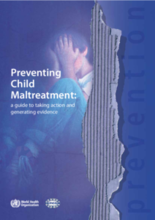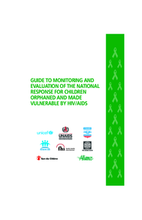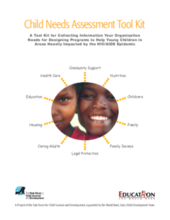This section offers instruction on the development and use of methods, indicators, and tools to assess child care practices.
Displaying 1 - 8 of 8
The Tracking Progress Tool is a free, web-based, interactive diagnostic and learning tool designed to enable national actors to determine the extent to which their country has effectively implemented the Guidelines for the Alternative Care of Children and to identify the priorities for change still ahead.
Transitioning to Family Care for Children: A Guidance Manual aims to provide practical guidance and tools for churches, faith-based organizations, donors, and others who are transitioning care for children away from residential care to care within families.
This handbook, Moving Forward: Implementation of the ‘Guidelines for the Alternative Care of Children,’ is aimed at legislators, policy-makers and decision-makers, as well as professionals and care providers, to support the implementation of the Guidelines for the Alternative Care of Children, endorsed by the United Nations General Assembly in 2009. It explains the key thrusts of the Guidelines, outlines the kind of policy responses required, and describes ‘promising’ examples of efforts already made to apply them in diverse communities, countries, regions and cultures.
Guidance on the development of monitoring and evaluation indicators for child protection, education, health and HIV, and hunger programs.
A report on common challenges facing children without parental care in the Caribbean (CARICOM region). It gives an in-depth understanding of why there is a lack of family-based preventative and rehabilitative services for children and provides recommendations.
Multi-disciplinary information and tools on assessing the incidence of child abuse and neglect, the risk and protective factors prevalent in families and communities, and support services to prevent and respond to violence against children.
Guidance on establishing a national monitoring and evaluation process to track a country’s response to children orphaned and made vulnerable by HIV and AIDS. It includes methods and tools for measurement, and recommends a set of core indicators to record national status and changes.
Comprehensive tool for undertaking household surveys in order to assess the needs of caregivers and young children in communities affected by HIV/AIDS. The pack includes detailed guidance on conducting the survey and analyzing the data.

